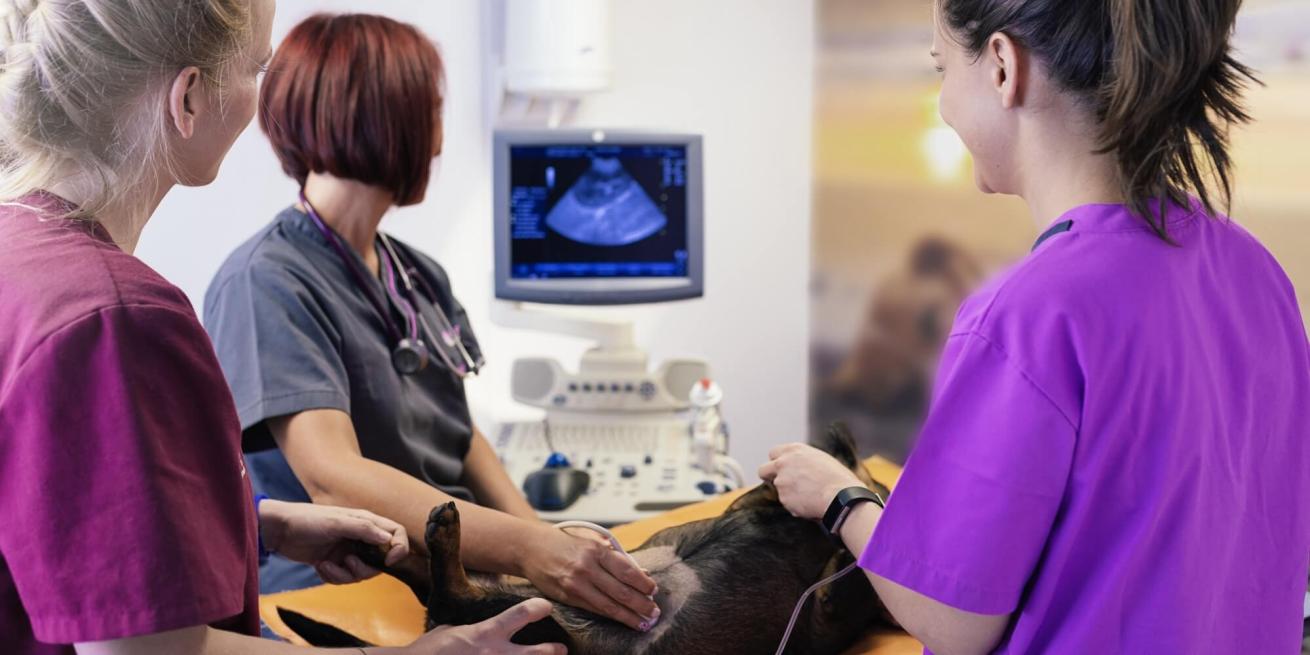
Effective communication and teamwork are essential components of a successful veterinary practice. Understanding the unique strengths and communication styles of team members can greatly enhance collaboration and productivity. It can also help you ensure that everyone is in the right role. One valuable tool for achieving this is the DiSC assessment.
What is the DiSC Assessment?
The DiSC assessment is a behavioral profiling tool that categorizes individuals into four primary personality types: Dominance (D), Influence (I), Steadiness (S), and Conscientiousness (C). These categories provide insights into how people approach tasks, interact with others, and respond to challenges.
For veterinary teams, this tool can be invaluable in creating a harmonious and productive work environment.
How to Use the DiSC Assessment to Maximize Your Team's Potential
1. Assessment and Understanding
The first step is to have each team member complete the DiSC assessment. We have a quick DiSC assessment that they can take to get a high-level overview, or we have a special training package that includes in-depth DiSC assessments for entire teams or veterinary hospitals. The DiSC assessment involves answering a series of questions designed to identify their dominant personality traits. Once completed, the results will provide a report outlining their unique strengths, communication preferences, and potential areas for growth.
2. Creating Awareness
Share and discuss the results with the entire team. Emphasize that each personality type brings valuable qualities to the table. For instance:
- Dominance (D): These individuals are often assertive, results-driven, and competitive. They thrive on challenges and are quick decision-makers. In a veterinary setting, they may excel in leadership roles or in high-pressure situations.
- Influence (I): I-personalities are outgoing, enthusiastic, and persuasive. They excel at building relationships and tend to be creative problem-solvers. They can be instrumental in client interactions, marketing efforts, and team motivation.
- Steadiness (S): Steadiness-oriented individuals are patient, empathetic, and reliable. They value stability and are excellent team players. They can provide a calming influence in stressful situations and are often skilled at client education.
- Conscientiousness (C): C-personalities are detail-oriented, analytical, and systematic. They focus on accuracy and quality and are excellent at creating and following processes. They play a crucial role in maintaining high standards in patient care and record-keeping.
3. Tailored Communication
Understanding each team member's DiSC profile enables more effective communication. For example, when discussing a new treatment plan, a D-type might appreciate a direct, concise approach, while an S-type may prefer a more empathetic and reassuring tone. In a team meeting, an I-type could contribute creative ideas and be a driving force for change, while a C-type might ensure that all details are thoroughly examined.
4. Task Allocation
Assign tasks based on individual strengths. Recognize that each personality type excels in different areas. For example:
- D-types may excel in surgical procedures and managing high-pressure situations.
- I-types can be instrumental in client interactions, marketing, and community outreach.
- S-types may shine in client education and providing emotional support.
- C-types are invaluable in tasks requiring precision, such as record-keeping and ensuring compliance with protocols.
5. Conflict Resolution
Recognize that different personalities may have conflicting approaches to problem-solving. Use the insights from the DiSC assessment to find common ground and facilitate productive discussions. It can be used to encourage open communication and respect for each team member's perspective. It can also help you find solutions that leverage the strengths of multiple personality types.
6. Continual Growth and Adaptation
Encourage team members to reflect on their DiSC profiles and explore areas for personal development. Here are examples of personal development strategies tailored to each of the DiSC personality types:
-
Dominance (D):
- Leadership Training: Engage in workshops or courses focused on effective leadership, delegation, and decision-making skills.
- Conflict Resolution Workshops: Develop skills in handling conflicts constructively and assertively.
- Time Management: Learn techniques to prioritize tasks and manage time efficiently, ensuring productivity without burnout.
-
Influence (I):
- Public Speaking and Presentation Skills: Enhance the ability to articulate ideas and engage audiences effectively.
- Networking and Relationship Building: Attend networking events and workshops to expand professional connections and strengthen relationships.
- Emotional Intelligence Training: Develop empathy and the ability to understand and respond to the emotions of others.
-
Steadiness (S):
- Stress Management and Mindfulness: Practice techniques to remain calm under pressure and maintain a steady, reassuring presence.
- Conflict Management: Focus on strategies for resolving conflicts while preserving relationships and team harmony.
- Self-Care and Boundaries: Learn to set and maintain personal boundaries to prevent burnout and ensure well-being.
-
Conscientiousness (C):
- Process Improvement and Efficiency: Explore methods for streamlining workflows, optimizing procedures, and ensuring high-quality outcomes.
- Continual Education and Certification: Stay updated with the latest industry advancements and maintain a high standard of professional knowledge.
-
Attention to Detail Exercises: Engage in activities that sharpen observational skills and improve accuracy in record-keeping and documentation.
Remember, while these are tailored suggestions for each personality type, it's crucial to recognize that individuals are unique. Personal development is a dynamic and individualized process, and combining strategies from different categories can be highly effective. Encourage self-awareness and provide opportunities for team members to pursue their own growth paths. This not only benefits the individuals but contributes to the overall success of the veterinary team.
Enhance Teamwork and Communication in Your Veterinary Hospital
The DiSC assessment is a powerful tool for enhancing teamwork and communication within veterinary teams. By understanding and appreciating each team member's unique strengths and communication style, you can create a more harmonious and productive work environment. Remember, diversity in personality types is an asset, not a hindrance. Embracing these differences leads to a stronger, more balanced veterinary team.

Corey Smith, MBA
President
I have come to veterinary medicine from a truly non-medical and non-veterinary path. With early roots in 4-H and, as a youth, owning 4 horses, 2 ponies, 2 dogs, 1 cat, 1 sheep, a whole slew of rabbits, and even a giraffe (that’s a story for another day), I am decidedly not a veterinarian. I'm a businessman, marketer, and talented coach. Whether I'm coaching in business, marketing, or helping leaders understand how their personality affects their interpersonal and client relationships, my goal is to help leaders be the best they can be.
